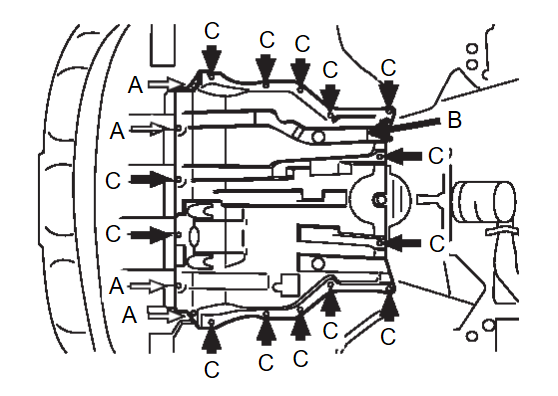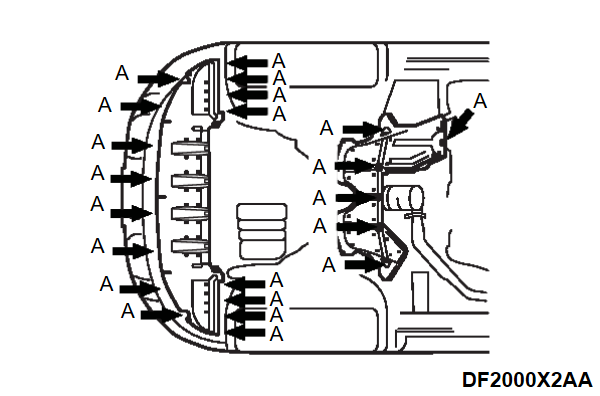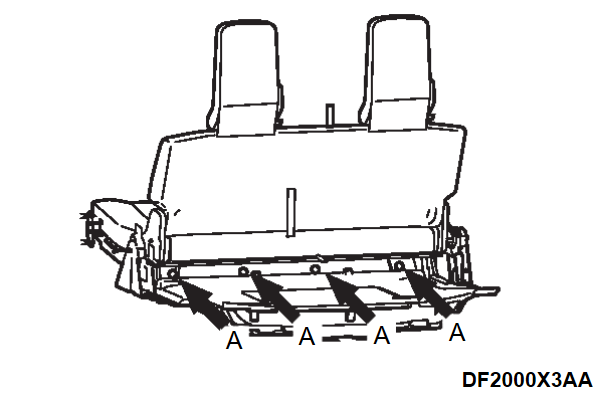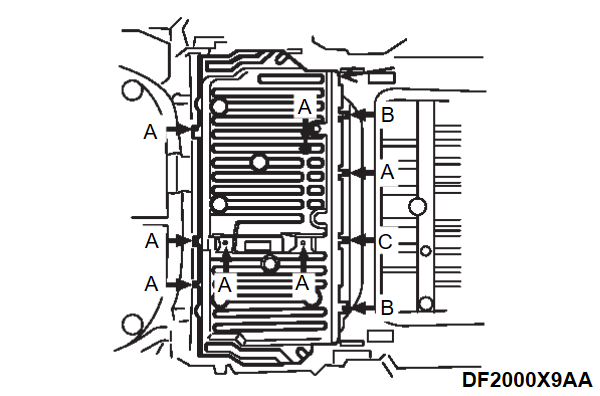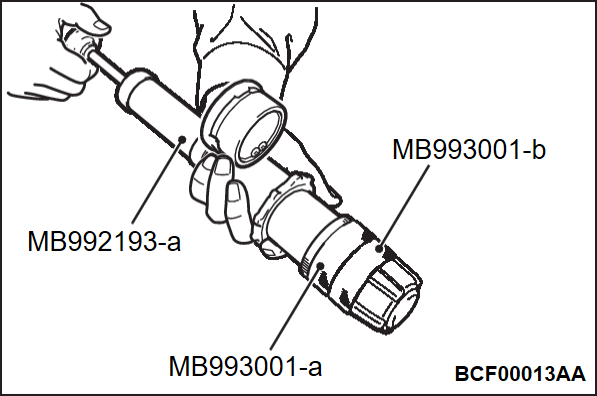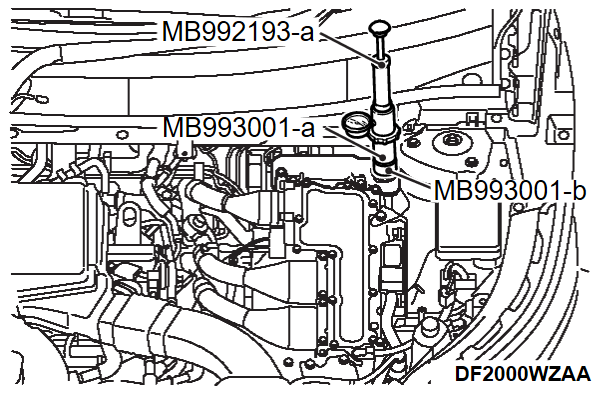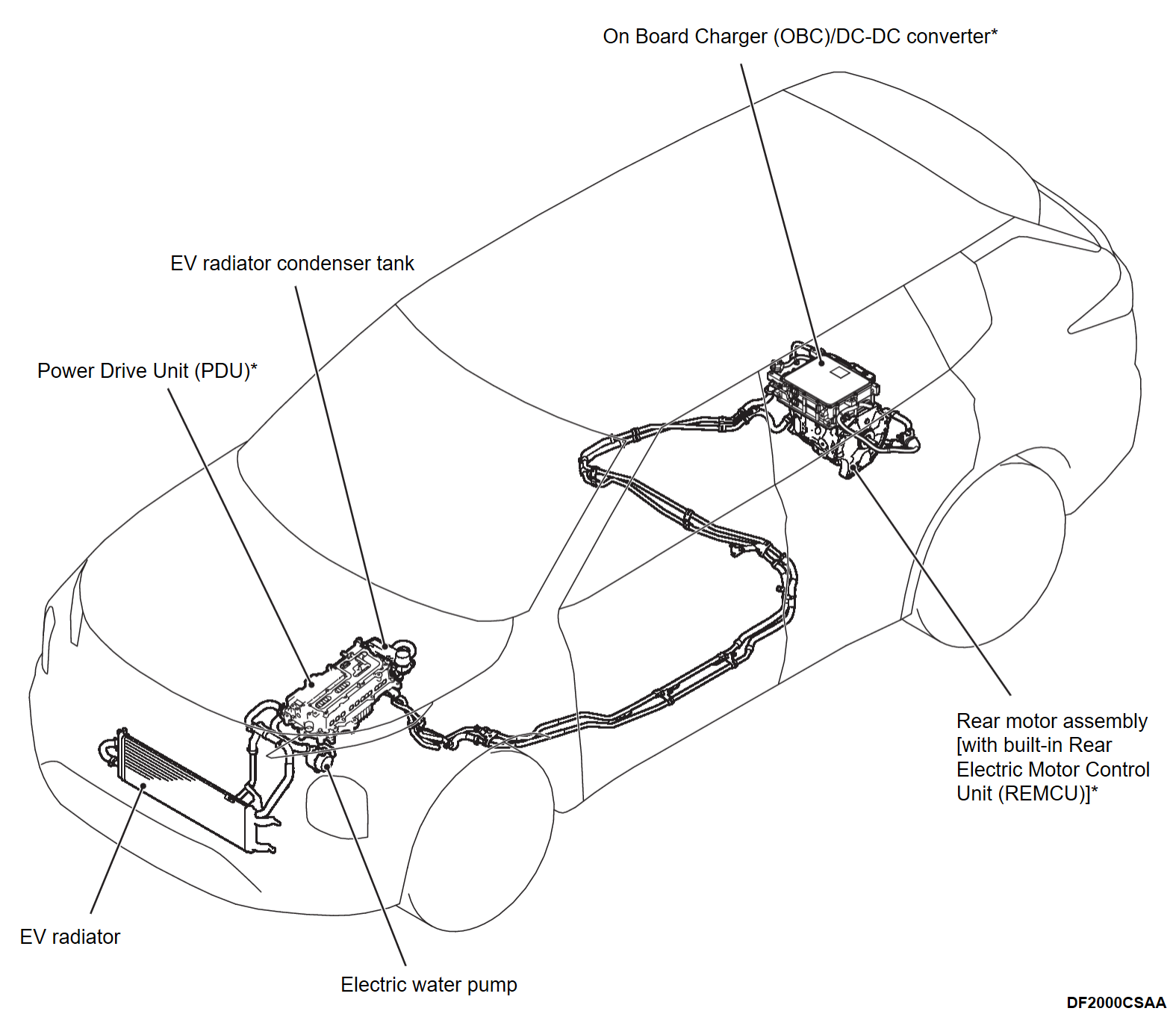EV COOLANT LEAK CHECK
Required Special Tools <When using M.U.T.-IIISE>:
- MB992744: Vehicle communication interface-Lite (V.C.I.-Lite)
- MB992745: V.C.I.-Lite main harness A
- MB992747: V.C.I.-Lite USB cable short
- MB992748: V.C.I.-Lite USB cable long
Required Special Tools <When using special tool radiator cap tester >:
- MB992193: Radiator cap tester
- MB993001: Radiator cap tester adapter set
1. Raise the vehicle.
2. Remove the bolts(A) and clips(C) to remove the engine room under cover front B (B).
3. Remove the clips (A) to remove the two under covers.
4. Perform the following procedures.
(1) Retract the third seat.
(2) Peel up the cargo floor box lid B onto the retracted third seat.
(3) Remove the clips and raise the cargo floor cover upward to remove it.
(5) Remove the clips (A) to remove the cargo floor carpet.
(6) Retract the third seat again.
5. Remove the bolts (A), ground bolts (B) and nuts (C) to remove the EV control unit cover LH and RH.
6. According to either of the procedures below, apply the pressure to the water cooling system.
When using M.U.T.-IIISE
- Perform the special function item "EV Coolant refilling control" using the M.U.T.-IIISE (Refer to EV COOLANT CHANGE
 ).
).
When using special tool radiator cap tester
- Using the following special tools, pressurize the EV radiator condenser tank to the same level as the EV radiator condenser tank cap valve opening pressure (Refer to EV RADIATOR CONDENSER TANK CAP VALVE OPENING PRESSURE CHECK
 ).
).caution Do not pressurize the radiator cap tester to 150 kPa (21 psi) or more. Use the following special tools.- Radiator cap tester (MB992193)
- a: Tester
- Radiator cap tester adapter set (MB993001)
- a: System adapter
- b: Cap adapter
- Radiator cap tester (MB992193)
7. Check the EV radiator, electric water pump, hoses or pipes for EV coolant leakage.
8. Check the hoses or pipes for damage and deterioration, and check the hose clamp for looseness.
![[Previous]](../../../buttons/fprev.png)
![[Next]](../../../buttons/fnext.png)
